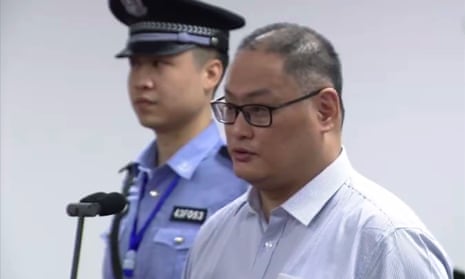A court in China has sentenced a Taiwanese democracy activist to five years in prison on subversion charges in a case that has strained relations between Beijing and Taipei.
Lee Ming-cheh sat silently as a judge read the sentence, accusing him of disseminating articles, books and videos critical of China’s Communist system in an attempt to foment a “western colour revolution”.
Taiwan’s presidential office called the verdict “unacceptable”, adding: “We urge the Beijing authorities to release Lee and allow him to return to Taiwan soon. We regret that Lee’s case has seriously damaged cross-strait relations”.
Lee, a volunteer for the Taiwan Association for Human Rights, disappeared in March during a trip to China and it was later revealed he was arrested. He had travelled to China frequently over the past decade without incident.
Beijing considers Taiwan to be a part of its territory. The democratic, self-ruled island has oscillated for years between closer ties with China and striking a more independent posture. Lee’s case has angered many in Taiwan and is seen as the latest move in Beijing’s efforts to intimidate an increasingly assertive Taipei.
Rights groups were quick to condemn the sentence and have decried Lee’s treatment since his disappearance.
“Lee Ming-cheh is the victim of a politically motivated prosecution. The evidence against him is not credible, his conviction preposterous but predictable,” said Roseann Rife, east Asia research director at Amnesty. “He is the latest to suffer under the Chinese authorities’ relentless attack against human rights and democracy activists.
“His so-called confession is highly dubious and was most likely extracted under extreme duress.”
The sentence was described as a “warning” to Hong Kong and others in Taiwan by Maya Wang, senior China researcher at Human Rights Watch. Chinese authorities have repeatedly condemned pro-democracy activists in Hong Kong.
